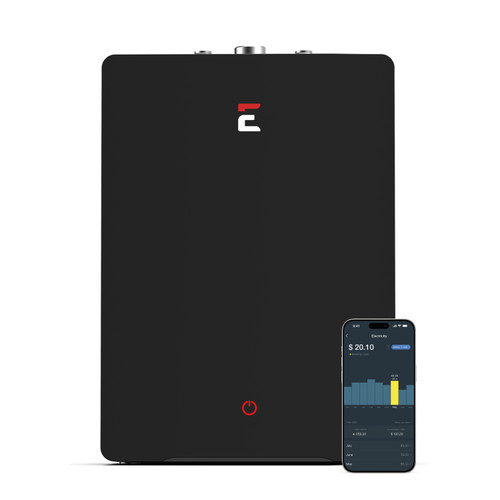
When it comes to choosing a water heater for your home, one of the primary decisions you'll need to make is whether to go with a gas or electric model. Both types have their own set of advantages and disadvantages, so it's essential to weigh your options carefully before making a decision. In this article, we'll compare gas and electric water heaters to help you determine which one is the best fit for your household.
Cost
Gas Water Heater
- Typically have a higher upfront cost compared to electric water heaters.
- Can be more expensive to install if you don't already have a gas line in your home.
- Operate more efficiently, which can result in lower monthly energy bills.
Electric Water Heater
- Usually have a lower initial cost than gas water heaters.
- Installation costs are generally lower, especially if you already have an existing electric connection.
- May result in higher energy bills over time due to lower efficiency compared to gas models.
When considering the cost of a water heater, it's essential to factor in both the upfront price and the long-term operational expenses to make an informed decision.
Efficiency
Gas Water Heater
- Typically more energy-efficient than electric water heaters, resulting in lower energy costs.
- Heat water faster than electric models, making them ideal for households with high hot water usage.
- May require proper ventilation to release combustion gases, which can impact installation options.
Electric Water Heater
- Generally less energy-efficient than gas water heaters, leading to higher energy consumption.
- Heat water slower than gas models, which may not be suitable for households with high hot water demands.
- Do not require ventilation for combustion gases, providing more flexibility in installation locations.
Efficiency is a crucial factor to consider when choosing a water heater, as it can impact both your energy bills and the performance of the unit in meeting your household's hot water needs.
Performance
Gas Water Heater
- Provides faster recovery time, allowing for quicker reheating of water after use.
- Delivers consistent hot water supply even during peak usage times.
- May require regular maintenance to ensure optimal performance and safety.
Electric Water Heater
- Slower recovery time compared to gas models, which may result in periods of insufficient hot water supply.
- Performance can be influenced by the electrical capacity of your home, impacting the availability of hot water.
- Generally requires less maintenance than gas water heaters.
Consider your household's hot water usage patterns and expectations when evaluating the performance of gas and electric water heaters to ensure you choose a unit that meets your needs.
Environmental Impact
Gas Water Heater
- May produce greenhouse gas emissions during operation, depending on the fuel source.
- Requires proper ventilation to prevent the release of combustion gases into your living space.
- Efficient gas water heaters can help reduce overall energy consumption and carbon footprint.
Electric Water Heater
- Considered more environmentally friendly than gas models due to lower emissions during operation.
- Do not produce combustion gases, resulting in a cleaner indoor air quality.
- Using renewable energy sources to power an electric water heater can further reduce its environmental impact.
If environmental sustainability is a priority for you, opting for an electric water heater or choosing a gas model with high efficiency and proper ventilation can help minimize your household's carbon footprint.
Conclusion
Choosing between a gas and electric water heater involves evaluating various factors such as cost, efficiency, performance, and environmental impact. By considering your household's specific needs and preferences, you can make an informed decision that will provide reliable hot water for years to come.